US says countries flouting Russia sanctions to face consequences
In a terse warning to countries that have rebuffed Washington’s calls to condemn Russia’s military operation in Ukraine, a senior US government official on Wednesday said they will face the consequences.
US treasury secretary Janet Yellen, doubling down on the rhetoric of senior Biden administration officials, said the US and its allies “will not be indifferent” to countries that have shied away from condemning Russia's operation in the former Soviet republic.
While she stopped short of naming any country, Yellen’s remarks ostensibly were directed at the key regional ally, India, which has continued its trade with Russia in defiance of persistent US warnings.
The Biden administration has through multiple channels conveyed its deep reservations to the Narendra Modi-led government in New Delhi on the issue but to no avail.
"Rest assured, until (Vladimir) Putin ends his heinous war of choice, the Biden Administration will work with our partners to push Russia further towards economic, financial, and strategic isolation," Yellen said at an event organized by the Atlantic Council Think Char.
Without naming India or any other ally, Yellen said the countries that are taking advantage of the situation and maintaining close ties with Russia are fence-sitters and shortsighted.
"While many countries have taken a unified stand against Russia's actions and many companies have quickly and voluntarily severed business relationships with Russia, some countries and companies have not," she said.
"Let me now say a few words to those countries who are currently sitting on the fence, perhaps seeing an opportunity to gain by preserving their relationship with Russia and backfilling the void left by others. Such motivations are short-sighted.”
Yellen warned that the coalition of sanctioning countries “will not be indifferent to actions that undermine the sanctions we’ve put in place”.
Biden’s warning to India
Her remarks came days after President Joe Biden warned India – which has taken a neutral stance on the simmering conflict between Russia and Ukraine – that buying more oil from Russia was not in the South Asian country’s interest.
Biden said that only India among the Quad group of countries was "somewhat shaky" in acting against Russia over its military operation in neighboring Ukraine.
On Monday, Biden dialed Indian premier Narendra Modi to discuss the “destabilizing impacts of Russia’s war against Ukraine”, said a handout issued by the White House.
In a news briefing later in the day, White House press secretary Jen Psaki said Biden told Modi that Washington could help India diversify its oil imports – but that it was not in New Delhi’s interests to boost energy imports from Moscow.
“The president … conveyed that we are here to help them diversify their means of importing oil. The imports from the United States are already significant, much bigger than the imports that they get from Russia,” Psaki told reporters.
“The president conveyed very clearly that it is not in their interests to increase that.”
India’s balancing act
New Delhi has tried to balance its ties with Moscow and the West and refused to join the Western countries in the United Nations to condemn Kremlin’s military offensive in Ukraine.
The simmering conflict, now into its seventh week, has seen Western powers slap a series of sanctions on Moscow. They have also been urging nations to move away from Russian energy supplies.
Daleep Singh, US deputy national security adviser for international economics, during his visit to India recently, said the Biden administration will not set any "red line" for India on its energy imports from Russia but does not want to see a "rapid acceleration" in purchases.
Speaking on Monday ahead of his meeting with Biden, Modi said that he has proposed the idea of direct talks between Putin and Ukrainian President Volodymyr Zelensky.
“I spoke several times on the phone to the presidents of both Ukraine and Russia,” Modi said. “I not only appealed to them for peace but also suggested President Putin hold direct talks with the Ukrainian President.”
Putin, dismissing US warnings to Moscow’s allies, on Tuesday said it was not possible to isolate Russia.
"It is impossible to severely isolate anyone in the modern world -- especially such a vast country as Russia," Putin said, asserting that Russia would achieve its objectives in Ukraine.
Away from the US, closer to Russia
India’s decision to abstain from voting on a UN Security Council resolution to condemn Russia’s military intervention in Ukraine was not received well in the US.
A Cold War ally of the Soviet Union, New Delhi has traditionally maintained pro-Russia positions. But it has also been wary of antagonizing Washington, which remains its biggest trade partner.
Experts said the refusal to vote against Russia may not necessarily mean endorsement of the military action in Ukraine but reflects India’s dependence on Russia for energy, arms, and trade.
Both Ukraine and Russia have been important trade partners for New Delhi, but its relations with Moscow go beyond trade and commerce.
As a formidable regional player, India sees strong ties with Russia of huge strategic significance.
India-Russia bilateral trade stood at $9.4 billion this fiscal year, as against $8.1 billion in the last fiscal. The two regional bulwarks have set a target of $30 billion in bilateral trade by the end of 2025.
India is heavily dependent on Russia for oil and gas. State-run Gas Authority of India Limited inked a 20-year deal with Russia’s Gazprom in 2018 for 2.5 million tons of liquefied natural gas a year.
The two countries also have strong defense ties. Last year, they signed an agreement to extend their military technology cooperation for the next decade.
India’s acquisition of Russia-made S-400 missile systems has also bolstered their defense ties.
Iran’s Army and IRGC destroy seven more Hermes, MQ-9 drones in retaliatory ops
'Iran no place for Hell dwellers': Iran’s security chief warns against ground offensive
Unpacking glaring contradictions in US-Zionist justifications for war against Iran
Lavrov: Russia 'will do everything’ to make US-Israeli aggression against Iran ‘impossible’
Iranian nation resolved to make criminals pay for blood of martyrs: Shiraz Jews
Iran slams US-Israeli attack on Tehran's 12,000-seat Azadi sports complex as war crime
Death toll from US-Israeli aggression against Iran crosses 1,200
Iran won't stop its retaliation until the aggressor is punished: Speaker Ghalibaf


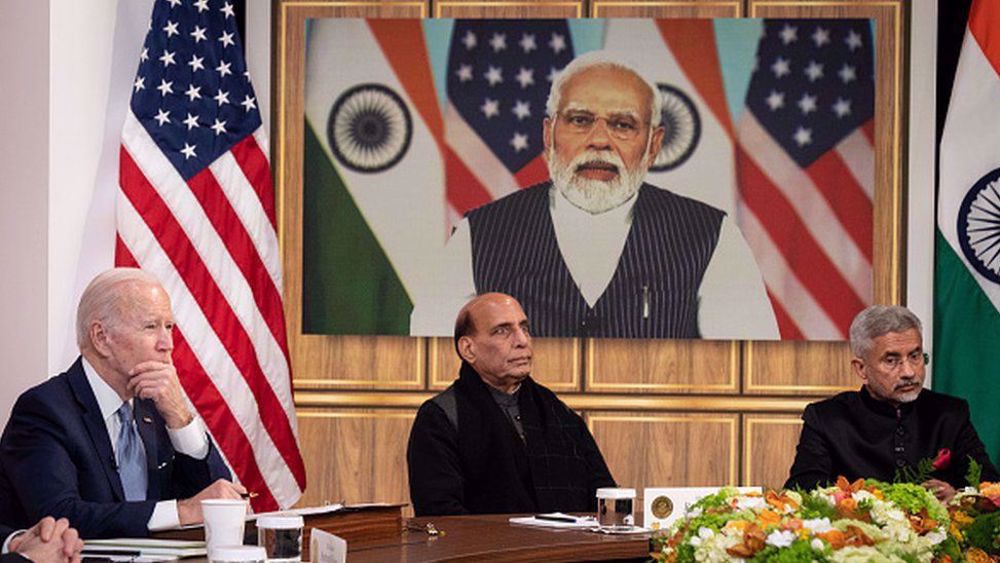
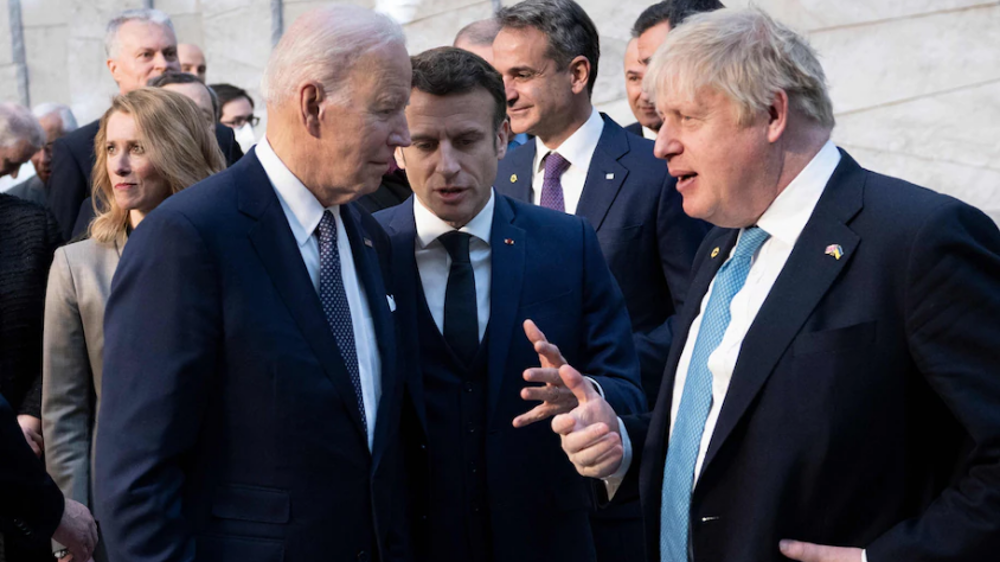
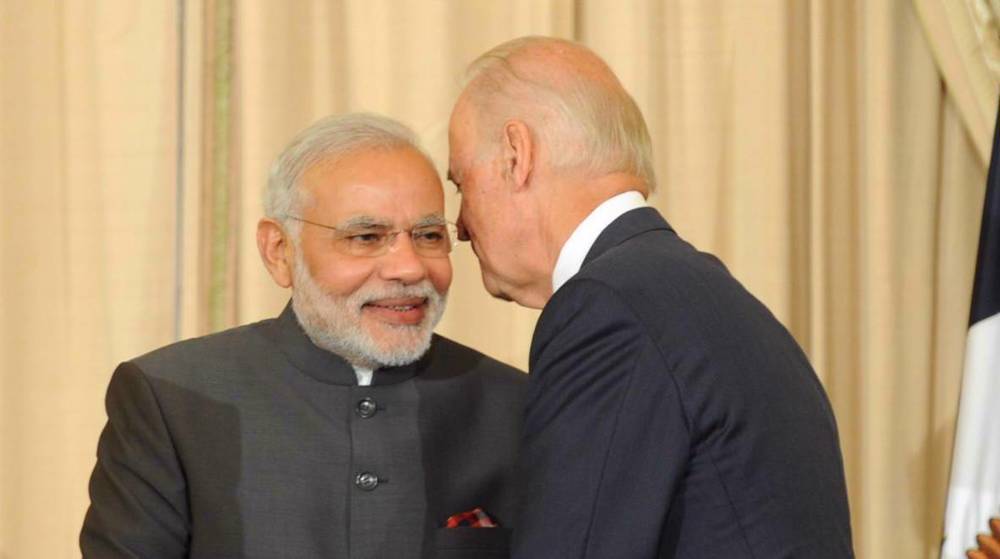
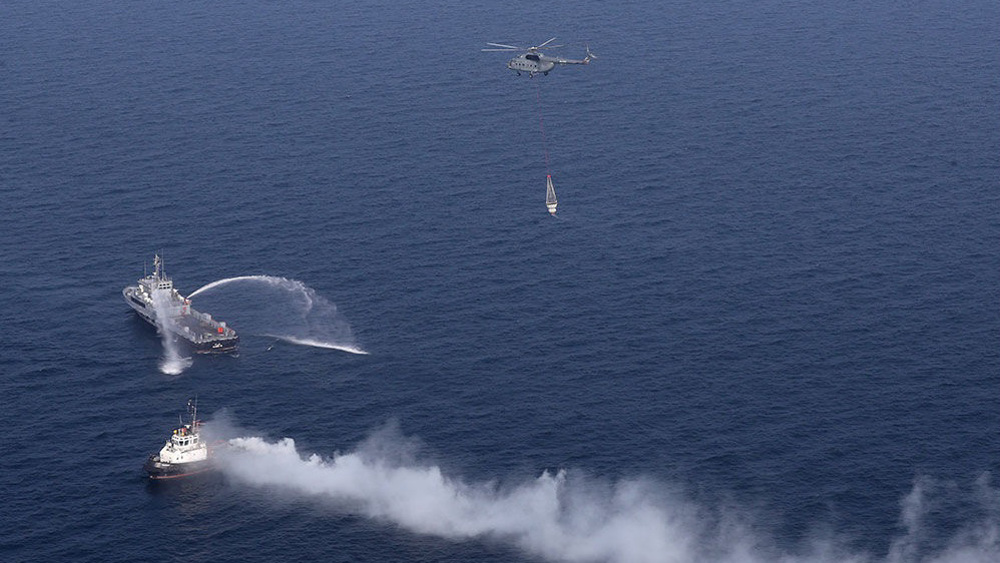

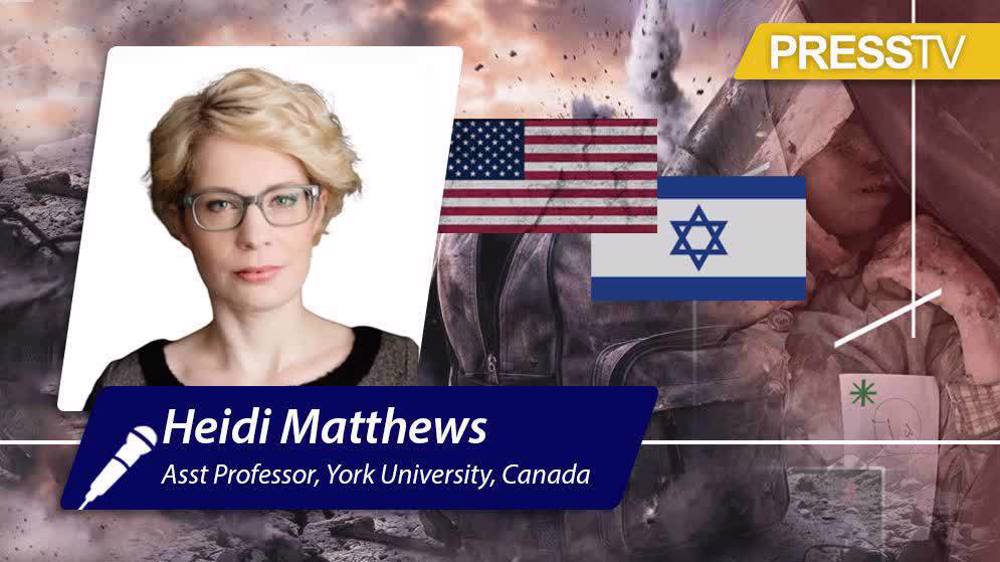
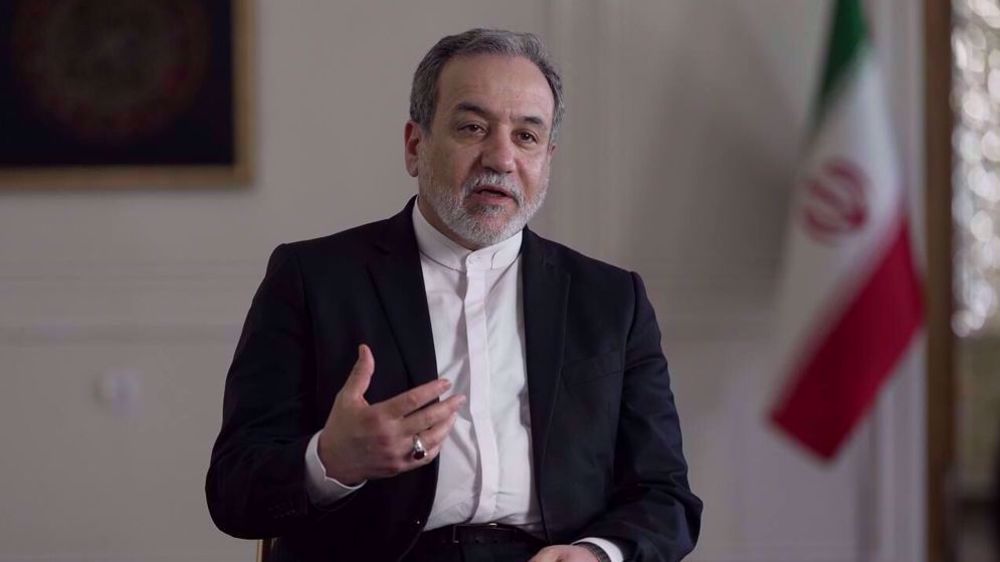






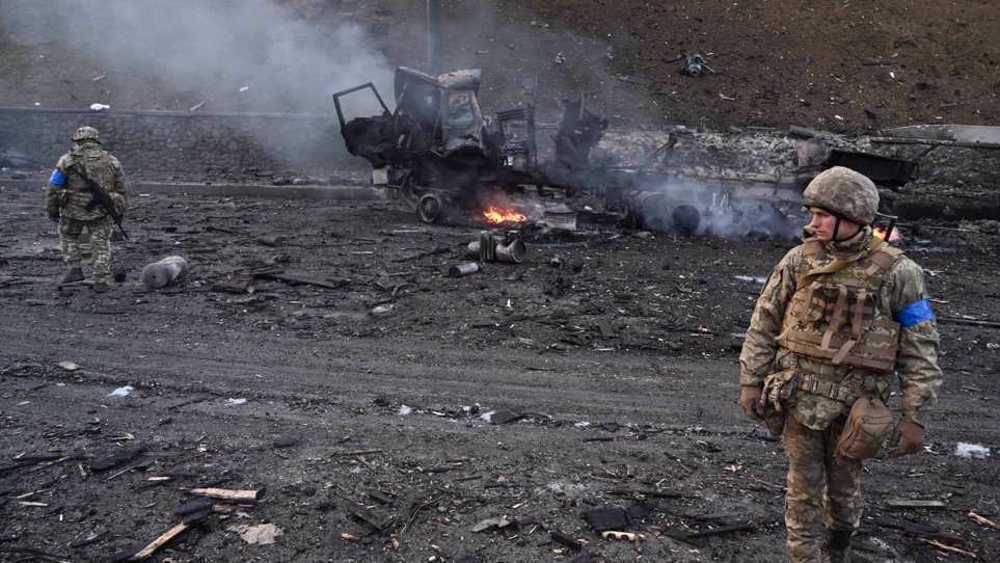
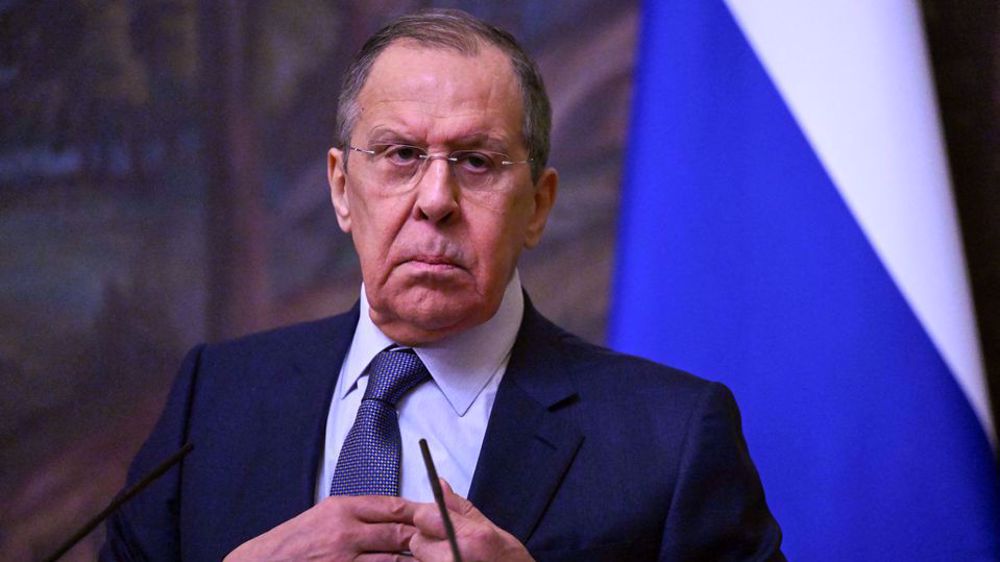

 This makes it easy to access the Press TV website
This makes it easy to access the Press TV website